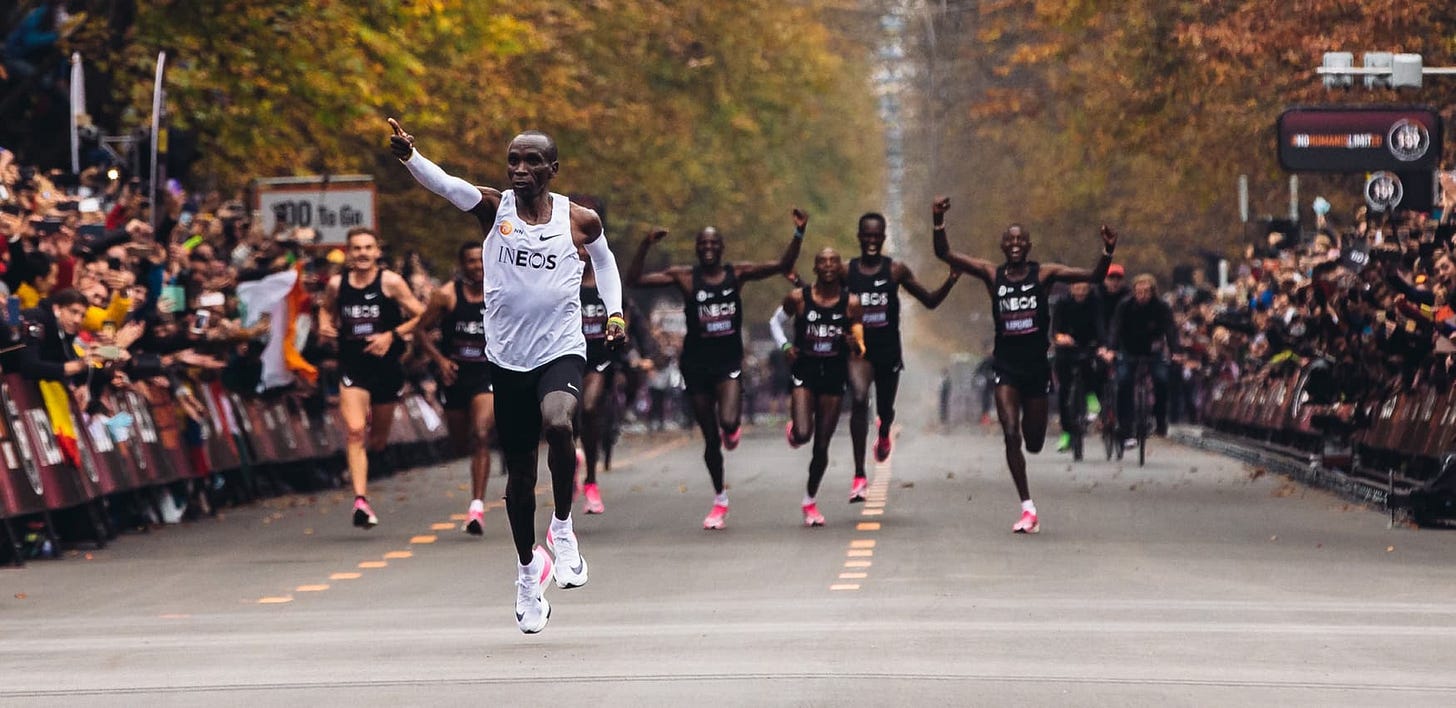Can AI Replace Big Money in Sports?
And Bridge the Gap Between Underdogs and Superteams?
Welcome! For those who are new here — I’m Arne, a passionate cyclist and engineer with an interest in AI. I explore how technology, particularly artificial intelligence, is transforming sports—or not—and what it means for athletes, coaches and sport enthusiasts. Be sure to check the social channel as well:
This week OpenAI released Deep Search. Sounds as fancy as any AI tool—but what does it actually do? According to OpenAI: Deep Search is an AI agent that uses reasoning to synthesize large amounts of online information and complete multi-step research tasks for you. In normal human language: an AI chatbot on steroids that generates studies of scientific level, call it a virtual PhD student.
The release of Deep Search triggered me as it makes high-quality research even more widely available than before and made me wonder how this impacts sports. Can teams on a budget leverage AI to artificially pump their science and performance team? Or is it just a handy tool to get a quick fix on your next thesis?
The Battle On Knowing What Works
The key to unlocking higher performance in endurance sports (and sports in general) is to understand what works and what does not work. That applies to the full spectrum of the sport: training, nutrition, equipment, psychology etc. Getting to know what works, or what does not, before competitors find out provides you with an edge.
This fuels an arms race where big teams continuously invest in research to maintain an edge. Over the past years we have seen many examples of how investments in research lifted the bar in sports performance:
Understanding carbohydrate intake: Team Sky was one of the first teams to crack the code on the glucose-fructose 2:1 strategy.
Eliud Kipchoge’s Breaking2: Nike’s Vaporfly shoes, an optimized pacing strategy and Maurten’s state-of-the-art nutrition helped Eliud to a Sub-2 Marathon in 2019.
Visma-Lease a Bike, UAE Team Emirates and Israel-Premier Tech use Carbon Monoxide rebreathers to track and optimize altitude camp adaptations and tune training schedules accordingly.
UAE Team Emirates are actively working with Ana, described as “our Analog Neural Agent, augments coaching, performance analysis, and communication—helping UAE Team Emirates XRG make more objective decisions while preserving the human connection that drives real progress”. — in short: an AI bot that uses data to optimize training.
Optimal use of supplements like ketones, bicarb, beta-alanine, caffeine etc.

This is just a small glimpse—there are many, many more examples. Most developments become part of common knowledge, like carbohydrate intake or the availability of carbon running shoes. Nevertheless, for many developments, the teams or individuals that apply them first tend to have a advantage for multiple seasons. Depending on the ‘complexity’ of the innovation competitors tend to take a few years catch up on knowledge and put it into practice.
Big Money vs Big Brains
Innovation costs money. The first (failed) Breaking2 attempt cost Nike 30 million dollars. Especially the development of equipment: shoes, bikes, clothing is expensive. However, acquiring the knowledge in itself, or distinguishing what works from does what not, doesn’t have to be. Especially not when you leverage AI. A lot of research is already out there. It is definitely not always the case that big teams invent the wheel. For example, Jeukendrup et al. already found back in 2004 (!) that you can increase the carbohydrate intake by applying the right glucose to fructose ratio. You don’t necessarily need big money to drive innovation you just need to find the big (AI) brains who did it for you.

AI As Your Complete Sports Science & Performance Team
This is where AI and especially tools like OpenAI’s Deep Search come in. If you are able to identify the hot topics and ask the right questions, AI can help to provide you with high quality, science-backed knowledge and reports. Using the carbohydrate intake example again: imagine asking Deep Search the following question 15 years ago:
"How can endurance athletes optimize carbohydrate intake strategies to prevent glycogen depletion and enhance performance during prolonged competition?"
Your virtual PhD student gets to work, searching for relevant scientific literature available on the internet. With its advanced reasoning capabilities, modern AI can apply fundamental research to your specific context. In a matter of minutes, a comprehensive report is ready. The team performance manager reviews it, and the team applies the insights the next day. This is not science fiction, this is actually possible today.
Smart use of AI might never completely close the knowledge gap between the teams with limited resources and the big money teams, but it can at least reduce it if used well.
Let’s go underdogs!


